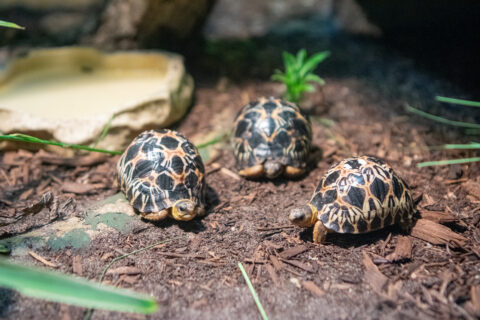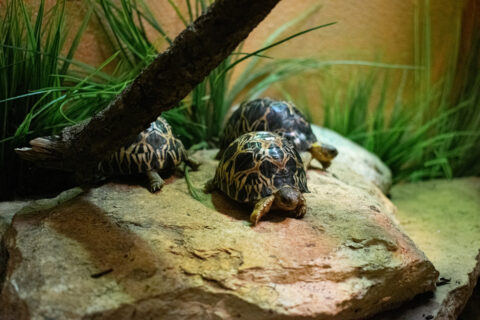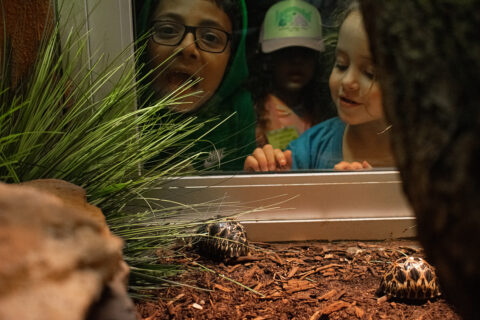Shell-ebrate Valentine’s Day with the Houston Zoo
Happy First Birthday Pickles Triplets!
 Valentine’s Day is three times sweeter at Houston Zoo this year as world-famous, critically endangered, radiated tortoises turn one year old. Dill, Gherkin, and Jalapeño have grown almost six times their original size—now weighing about 116 grams. Guests can see the adorable trio and wish the Pickles triplets a happy first birthday in their new home inside the Reptile and Amphibian House.
Valentine’s Day is three times sweeter at Houston Zoo this year as world-famous, critically endangered, radiated tortoises turn one year old. Dill, Gherkin, and Jalapeño have grown almost six times their original size—now weighing about 116 grams. Guests can see the adorable trio and wish the Pickles triplets a happy first birthday in their new home inside the Reptile and Amphibian House.
A year ago, the tortoises became viral sensations as the offspring of 90-year-old first-time father, Mr. Pickles. The birth of these radiated tortoises came as a surprise after a herpetology keeper happened to spot Mrs. Pickles as she was laying her eggs. The soil in Houston is not conducive to the eggs of the Madagascar native tortoises, and it is unlikely they would have hatched on their own. The animal care team quickly uncovered the eggs and began the delicate incubation process. The eggs were closely monitored for more than five months as they were cooled off to about 50 degrees to mimic what would happen in the wild. The eggs were later returned to room temperature and eventually placed in an 80-degree incubator before they successfully hatched on Feb. 14, 2023.
 The Pickle family are a big “dill” in the radiated tortoise community. Mr. Pickles is one of the most genetically valuable radiated tortoises in the Association of Zoos and Aquariums’ (AZA) Species Survival Plan® (SSP). The radiated tortoise is considered to be one of the world’s most beautiful tortoises. The carapace is brilliantly marked with yellow lines radiating from the center of each dark plate of the shell, hence its name.
The Pickle family are a big “dill” in the radiated tortoise community. Mr. Pickles is one of the most genetically valuable radiated tortoises in the Association of Zoos and Aquariums’ (AZA) Species Survival Plan® (SSP). The radiated tortoise is considered to be one of the world’s most beautiful tortoises. The carapace is brilliantly marked with yellow lines radiating from the center of each dark plate of the shell, hence its name.
 Radiated tortoises can be found in dry forest in southern Madagascar. They are critically endangered from over-collection for the illegal pet trade and are known to produce few offspring. By visiting the Zoo, guests are helping save wild animals in Madagascar. A portion of each Zoo membership and admission goes toward helping the Zoo’s partners in Madagascar replant wildlife habitat to save animals in the wild.
Radiated tortoises can be found in dry forest in southern Madagascar. They are critically endangered from over-collection for the illegal pet trade and are known to produce few offspring. By visiting the Zoo, guests are helping save wild animals in Madagascar. A portion of each Zoo membership and admission goes toward helping the Zoo’s partners in Madagascar replant wildlife habitat to save animals in the wild.
